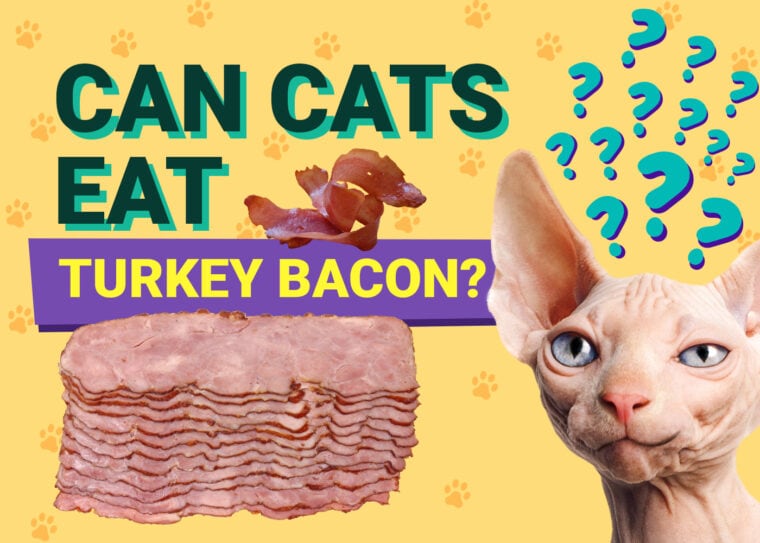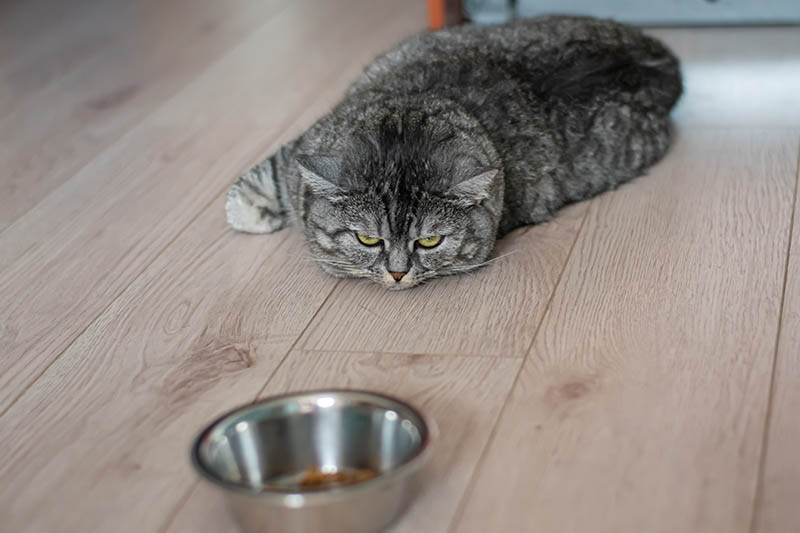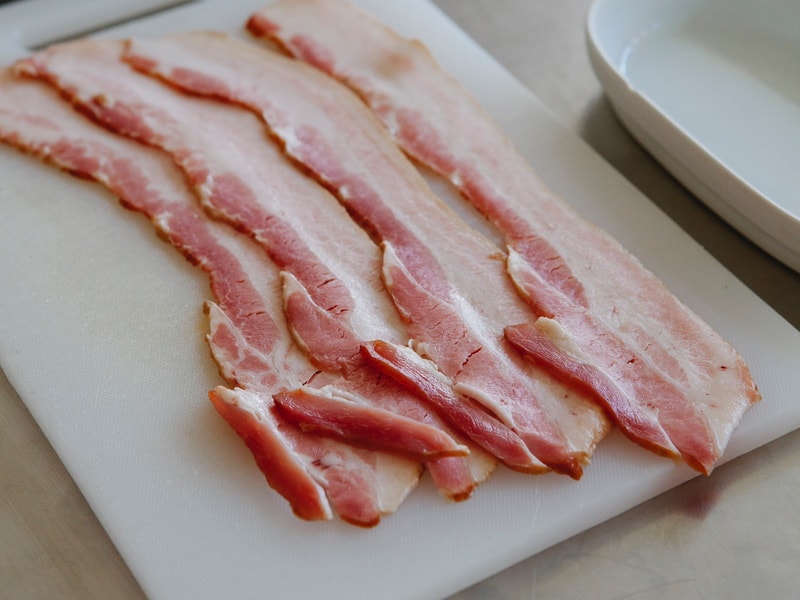
Cats are obligate carnivores that require a significant amount of meat in their diet. Since that’s the case, it may be tempting to think that all meat is suitable for our cats. However, that isn’t always the case. For instance, turkey bacon is not the safest meat to feed your cat.
Turkey bacon is not toxic to cats, so if your cat swipes a piece of it off your plate and makes a mad dash, he probably will be okay. Still, turkey bacon is not something you should feed your cat regularly, as there are potential health risks that are not worth the limited nutritional value turkey bacon can offer. Keep reading below to learn more about the health risks of feeding your cat turkey bacon.
Is Turkey Good for Cats?
Turkey meat is considered healthy for cats to eat. There are many nutritional benefits since it is a low-calorie protein rich in zinc, phosphorus, selenium, magnesium, B vitamins, sodium, and potassium. It is also low in fat. Turkey contains tryptophan, which is an amino acid that can help regulate your cat’s sleep schedule.

Overall, turkey is a good snack for your cat.
Turkey bacon, on the other hand, is a different story. Turkey bacon is made from chopped up turkey that has been smoked and cured. It is then pressed into a shape that resembles pork bacon rashers. Turkey bacon is packed with salts and fats, making it much less healthy than plain turkey. Avoid turkey bacon if you want to feed your cat a turkey snack and stick with plain cooked turkey.
Health Concerns About Feeding Turkey Bacon to Your Cat

If you add turkey bacon to your cat’s regular diet, it can lead to long-term health issues such as hypertension, heart disease, and obesity. The additional ingredients that comprise turkey bacon are not healthy for your cat in large potions.
Salt
While salt is not strictly bad, too much can have disastrous consequences for your cat’s health. Most cat kibble provides your cat’s necessary daily salt content, so there is no need to supplement it with turkey bacon. If you do, there is a good chance that your cat’s salt intake will be much higher than it should be.
If you suspect your cat has ingested too much salt, reach out to a pet poison control hotline or your vet immediately. Luckily salt toxicity is not a common problem.
Preservatives
Most turkey bacon contains preservatives, which is not ideal for your cat. Over time, feeding your cat too much food with preservatives can lead to adverse health consequences.
Poor Nutrient Balance
Fat is an integral part of your cat’s diet—in moderation. If your cat ingests too much fat, their body can be overloaded and pushed toward obesity. This can lead to additional health complications, such as hepatic lipidosis, which is more common in overweight cats. Hepatic lipidosis occurs when the cat’s liver cannot properly process fat.
What Happens if Your Cat Eats Turkey Bacon?

If you were preparing turkey bacon for yourself when your cat stole a bite, you probably don’t have much to worry about. One nibble of turkey bacon will not likely cause your cat much harm.
Can Cats Eat Raw Turkey Bacon?
Raw turkey bacon can be problematic for cats, as it may contain harmful bacteria or parasites. If your cat stole only a tiny sliver of raw turkey bacon, he is probably fine. Still, keep a close eye on him and monitor him for any health or behavior changes.
Can Cats Eat Cooked Turkey Bacon?
Cooked turkey bacon doesn’t have the same concerns as raw turkey bacon, so you have less to worry about if your cat snuck a bite. If your cat only ate a small quantity, keep an eye out for any signs of food allergies or gastrointestinal upset. But if your cat ate a lot of turkey bacon, you will want to take him to the vet to ensure his system is not overloaded with salt or fat.
How to Safely Feed Turkey to Your Cat
The best form of turkey to feed your cat is a turkey-flavored kibble designed for felines. However, if you genuinely want to supplement your cat’s meal with turkey meat, the safest way to do so is with plain cooked turkey.
While preparing the turkey for your cat, remove all bones and skin. They can be choking hazards for your cat. The meat can be breast meat or dark meat, and it can be ground or in small, bite-sized chunks. Baking, boiling, or broiling the meat is the best way to cook it. Do not deep fry it or add any seasoning, as this is not healthy for your cat. Plain turkey may sound boring to us, but it is a delicacy for your cat!
Knowing exactly what your feline companion can and cannot eat will help you become the best pet parent. Recognizing that not all cat bowls are equal is also key! The Hepper NomNom Cat Bowl sets itself apart from traditional options by catering to the specific needs of cats. The innovative design offers whisker relief via shallow dishes and promotes digestion with a slight bowl elevation. Find out if the Hepper NomNom is right for your cat by clicking here.
At Pet Keen, we’ve admired Hepper for many years and decided to take a controlling ownership interest so that we could benefit from the outstanding designs of this cool cat company!
Conclusion
While turkey bacon is not a good treat for your cat, there are plenty of other ways to feed him turkey. If your cat manages to steal a small sliver of turkey bacon, he will likely be fine. If in doubt, never hesitate to reach out to your veterinarian. While eating large portions can cause adverse effects, it is more likely that your cat will suffer little more than a temporary tummy ache.
Featured Image Credit: Warren Price Photography, Shutterstock








